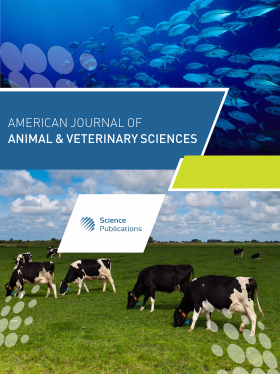Phenotypic Diversity of South African Indigenous Goat Population in Selected Rural Areas
- 1 University of Limpopo, South Africa
- 2 Farm Animal Genetic Resources, South Africa
- 3 University of Pretoria, South Africa
- 4 Agricultural Research Council, South Africa
- 5 Tshwane University of Technology, South Africa
Abstract
Phenotypic characterisation of indigenous goat populations is crucial in providing information on goat types and their attributes and may play an important role as guideline for conservation and sustainable us of these resources. The objective of this study was to characterise indigenous goat populations in rural areas of South Africa. Appearance of indigenous goat phenotypes and their typical features were observed from 297 individual goats. FREQ procedure of Statistical Analysis System was used to determine the descriptive statistics of the qualitative phenotypic variables. To detect the statistical differences for quantitative traits, the General Linear Model procedure of SAS was computed, whereas Fisher’s Least Significant Difference test was used to separate the least square means (P<0.05). Horns and toggles were the most dominant phenotypes found in the different regions, while the beard had low proportions across regions. Black coat colour was the dominant colour (9.68-69.57%) of most of the populations in Mopani, Vhembe, Tshwane, Westrand, Bojanala, Motheo and Thabo Mofutsanyane regions. There was a significant (P<0.05) difference in all phenotypic measurements, with higher (P<0.05) values for body length (48.23 cm), body weight (26.86 kg) and wither height (64.61 cm) observed in indigenous goats of Dr. Ruth Segomotsi Mompati (DRSM) region. Goats in Tshwane, Westrand and DRSM had significantly similar body length whilst also those in Motheo, Thabo and Vhembe had significantly similar body length. The indigenous goats of Thabo Mofutsanyana region had the highest (P<0.05) value for rump length (17.52 cm), however have the shortest tail length (7.17 cm) compared to those at other regions. Results from the study shows considerable phenotypic heterogeneity in qualitative traits of indigenous goat population and their distributions in different regions.
DOI: https://doi.org/10.3844/ajavsp.2020.59.66

- 6,643 Views
- 4,331 Downloads
- 12 Citations
Download
Keywords
- Body Length
- Characterization
- Coat Colour
- Phenotypes
- Regions
